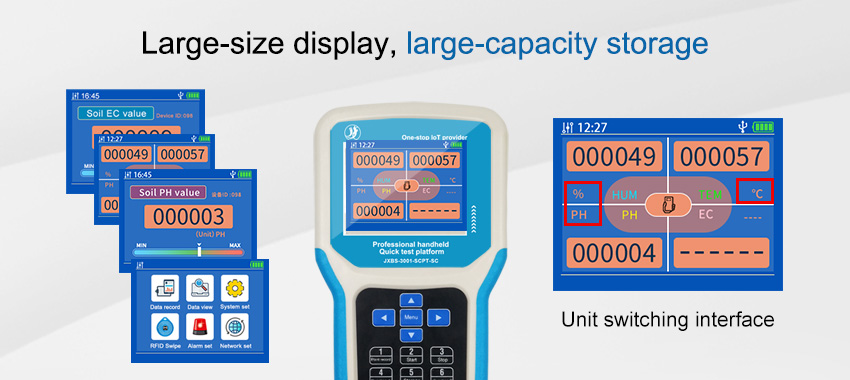Soil health is a crucial factor in agricultural production, affecting crop growth, yield, and quality. Traditional methods of soil analysis involve laboratory testing, which can be time-consuming and costly. However, with advancements in technology, soil sensors have emerged as a valuable tool for real-time monitoring of soil health. This article explores the role of soil sensors in enhancing agricultural production, their types, and applications.

The Importance of Soil Health in Agriculture Soil health is critical for agricultural production
as it provides the necessary nutrients for optimal crop growth and development. Soil health also affects soil structure, water-holding capacity, and the presence of beneficial microbes, all of which play a role in crop productivity. Poor soil health can lead to reduced crop yields, increased vulnerability to pests and diseases, and negative impacts on the environment.
Understanding Soil Sensors Soil sensors are devices that measure various parameters of soil
including moisture content, temperature, nutrient levels, and pH balance. These sensors provide real-time data, enabling farmers to assess soil health and make informed decisions regarding irrigation, fertilization, and pest control. There are several types of soil sensors, including capacitance sensors, tensiometers, and optical sensors.
Types of Soil SensorsCapacitance sensors measure soil moisture
by assessing the electrical conductivity between two electrodes inserted into the soil. Tensiometers measure soil moisture tension, indicating the amount of force needed to remove water from the soil. Optical sensors measure changes in light reflection, providing information about soil moisture, nutrient levels, and organic matter content.
Applications of Soil SensorsSoil sensors are used in various agricultural applications
including precision agriculture, irrigation management, and nutrient management. In precision agriculture, soil sensors can be integrated with other technologies, such as geographic information systems (GIS) and remote sensing, to provide detailed soil maps for more targeted crop management. In irrigation management, soil sensors can help farmers optimize water usage by providing real-time data on soil moisture levels, enabling them to schedule irrigation based on actual crop water requirements. In nutrient management, soil sensors enable farmers to determine the exact amount and timing of fertilizer application, minimizing excess nutrient runoff.
Benefits of Soil Sensors Soil sensors provide numerous benefits to agricultural production
including improved crop productivity, reduced water usage, and increased resource efficiency. These sensors enable farmers to make data-driven decisions based on real-time soil health information, reducing losses due to inefficient irrigation or fertilizer application. Soil sensors can also help minimize environmental impacts, such as nutrient runoff, by promoting more targeted and efficient use of resources.

Challenges and Future Directions The adoption of soil sensors faces several challenges
including initial investment costs, technical complexity, and the need for farmer education and training. However, advancements in sensor technologies and increasing focus on sustainable agriculture are likely to drive the development and affordability of these tools. Additionally, the integration of soil sensors with other technologies, such as artificial intelligence and machine learning, will further enhance their effectiveness and widen their applications.
Conclusion:
Soil sensors play a vital role in enhancing agricultural production by providing real-time monitoring of soil health. These sensors provide various benefits, including improved crop productivity, reduced water usage, and increased resource efficiency. Despite facing challenges, the adoption of soil sensors is likely to increase as technology continues to evolve, and the importance of sustainable agriculture becomes more prominent. Therefore, it is essential for farmers to invest in soil sensors to promote a healthier and more productive agricultural future.
